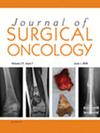Neoadjuvant Chemotherapy for Retroperitoneal Sarcoma: A Systematic Review and Meta-Analysis
Abstract
Introduction
Retroperitoneal sarcoma is a rare malignancy, and surgical resection remains the primary treatment option. While neoadjuvant radiotherapy has shown limited long-term benefits, the role of neoadjuvant chemotherapy in this setting remains uncertain. This study aimed to evaluate the impact of neoadjuvant chemotherapy on survival outcomes in patients with resectable retroperitoneal sarcoma.
Methods
A comprehensive search was performed in PubMed, Scopus, the Central Register of Clinical Trials, and Web of Science for studies published up to December 2024. Hazard ratios (HRs) with 95% confidence intervals (CIs) were pooled using a random-effects model, and heterogeneity was assessed using I² statistics. Statistical analyses were conducted using R Software version 4.4.1 (R Foundation for Statistical Computing).
Results
Four retrospective studies were included, comprising a total of 2156 patients with resectable retroperitoneal sarcoma, of whom 361 (16.7%) received neoadjuvant chemotherapy. The analysis showed no significant difference in 5-year overall survival between patients who underwent neoadjuvant chemotherapy and those who did not. A sensitivity analysis, performed after excluding the study contributing most to heterogeneity, revealed a statistically significant 18% higher risk of mortality in patients receiving neoadjuvant chemotherapy (HR 1.18; 95% CI 1.06–1.32). Heterogeneity dropped to I² = 0% in this analysis.
Conclusion
These findings suggest that neoadjuvant chemotherapy may be associated with worse survival outcomes, although these results remain exploratory due to the retrospective nature of the included studies and the limited number of available datasets. Ongoing prospective trials, such as the STRASS2 trial, will be critical to further defining the role of neoadjuvant chemotherapy in retroperitoneal sarcoma management.



 求助内容:
求助内容: 应助结果提醒方式:
应助结果提醒方式:


